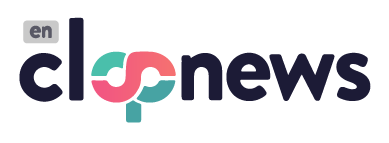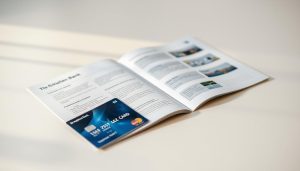Can one small plastic solution simplify spending at home and abroad while keeping monthly costs low?
The review opens with a clear snapshot of the Rabocard offering and who might gain from it. It notes a low monthly fee, a typical limit of €1,000 and the option to raise that limit with a stronger income profile.
In a country where many purchases go through debit and bank accounts, the piece explains when a credit card adds real value. It highlights common uses like flights, hotels, and car rentals, and flags that some local shops prefer debit or cash.
Readers will find quick facts on billing, the grace period that avoids interest, and what to expect from eligibility checks. This short guide sets context so they can decide if the product fits daily life, travel plans, and their broader banking choices.
Rabocard at a glance: what it is and who it’s for
A modest monthly fee can unlock a useful payment option for bookings and online purchases. The Rabocard costs up to €2 per month and comes with a standard €1,000 monthly limit that can rise to €10,000 for higher earners.
It is issued by a major bank and is built to sit alongside a primary account in a market where debit payments dominate. Use cases include travel reservations, rental deposits, and online platforms that ask for a credit credential.
The low ongoing price makes this option attractive for cost-conscious users and students who book flights or hotels. Most daily payments in the Netherlands still go via debit cards, so this product is best for specific needs rather than every checkout.
Applicants who already hold a dutch bank account will find this card a simple, predictable extension of their banking. It suits people who value clear costs, straightforward limits, and the ability to handle larger or international purchases without switching providers.
Key benefits that make Rabobank’s credit card stand out
For everyday shoppers and occasional travelers, clear pricing and useful protections matter most.
The main selling point is the low ongoing fee—up to €2 per month—which keeps yearly costs minimal compared with premium alternatives that can exceed €200 per year.
A default monthly limit of €1,000 gives straightforward purchasing power. That limit can rise to as much as €10,000 depending on income and account history, so the option grows with the user.
Many Dutch cards also include purchase and travel insurance, which helps with flight, hotel, and car rental problems. The monthly billing cycle and a standard grace period mean users can avoid interest when they pay on time.
Predictable fees make budgeting easier, and access to dispute mechanisms adds confidence for online purchases and international bookings. Compared with some higher-tier offers from competitors such as ABN AMRO, this product emphasizes everyday value over luxury perks.
Rabobank credit card Netherlands benefits charges usage
When planning trips or big online purchases, a low-fee payment option can simplify checkout. The product costs up to €2 per month depending on the banking package, keeping yearly outlay low compared with many per year fee models.
A standard €1,000 monthly limit is included and may rise to as much as €10,000 after income checks. Monthly statements arrive on a set billing cycle, and paying the full balance within the grace period usually avoids interest.
Acceptance varies: international retailers and travel sites often accept a credit card, while smaller local merchants may prefer debit. For routine transfers and daily money movement, use standard bank rails to avoid extra costs.
Typical insurance elements associated with cards in the Netherlands help protect purchases and travel plans. For clarity, users should check the bank website for package details and any additional terms before applying.
Eligibility and how to order: opening a Dutch bank account, checks, and documents
Before ordering, applicants should confirm they meet identity and income checks required by local banks.
Start by opening a dutch bank account tied to your primary account, since issuers link the product to a bank account for billing and repayments.
Prepare documents: valid passport or ID, proof of Dutch address, and a BSN. Some providers allow you to open dutch or even begin an open bank account before the BSN arrives.
Expect a BKR assessment that reviews past borrowing and repayment behavior. A negative record can affect eligibility, the limit, or the decision to order the card.
Providers also review income to set limits. Students can use student packages at major banks; debit cards remain standard for daily use, while the credit product is for reservations and larger payments.
Use the bank website for up-to-date information, identity checks, and timelines. If new to the country, aligning health insurance and regular transfers helps build a stable profile for banking decisions.
*You will stay on the same site.
Using your Rabocard in the Netherlands and abroad: practical tips to save time and money
Knowing when to pick a debit or credit option will cut hassle and keep money in the pocket. For daily buys in supermarkets and cafés, debit cards are the go-to choice.
Keep the Rabocard for bookings, deposits, and online sites that require a credit credential. When a webshop asks for a card, have it ready and pay the full statement within the grace period to avoid interest and extra fees.
Use local tools for quick transfers. Tikkie speeds up peer-to-peer money transfers with any Dutch bank, while iDEAL handles most domestic online payment flows.
Plan for ATM access at night—some ATMs close after hours (ABN AMRO machines often close between 11 pm and 7 am). Check the bank website before going out late.
Enable app alerts, set sensible spending limits before trips, and avoid cash advances which bring immediate costs. Carry both a debit and a credit card to reduce delays at unfamiliar terminals.
Store insurer and support numbers on the phone so they are ready at home or abroad. That small step saves time when problems arise and keeps purchases and reservations protected.
Your next step: is the Rabocard the right choice for your banking in the Netherlands?
Start by matching how you pay today with what this low-cost product can provide.
Its €2 per month fee and a typical €1,000 limit (which can grow with income) make it an affordable option for students and professionals who mainly use debit but need extra flexibility for bookings and online purchases.
Applicants should hold a dutch bank account, gather ID and income proof, and expect a BKR assessment. Apply on the issuer’s website and allow time for checks and delivery.
If premium travel perks matter, compare offerings from abn amro and other banks netherlands before deciding. This choice balances low yearly cost with practical protections for home and travel spending.


